Results by state
New Hampshire primary
Mail-in ballots were due by January 11, at the state convention. The primary was tabulated using Bucklin voting. Percentages shown are percentage of ballots cast. [15] [16]
| Candidate | 1st | 2nd | 3rd | Total | Percentage |
|---|---|---|---|---|---|
| Vermin Supreme | 10 | 3 | 13 | 26 | 17.3% |
| Kim Ruff | 6 | 9 | 7 | 22 | 14.7% |
| Jo Jorgensen | 5 | 8 | 4 | 17 | 11.3% |
| None of the Above (NOTA) | 4 | 6 | 3 | 13 | 8.7% |
| Dan "Taxation Is Theft" Behrman | 0 | 6 | 7 | 13 | 8.7% |
| Jacob Hornberger (write-in) | 9 | 0 | 0 | 9 | 6.0% |
| Sam Robb | 1 | 2 | 5 | 8 | 5.3% |
| Mark Whitney (write-in) | 4 | 0 | 2 | 6 | 4.0% |
| Arvin Vohra | 1 | 0 | 5 | 6 | 4.0% |
| Ken Armstrong | 0 | 2 | 3 | 5 | 3.3% |
| Lincoln Chafee (write-in) | 1 | 2 | 1 | 4 | 2.7% |
| Justin Amash (write-in) | 1 | 1 | 1 | 3 | 2.0% |
| Keenan Wallace Dunham | 0 | 0 | 2 | 2 | 1.3% |
| Max Abramson | 1 | 0 | 0 | 1 | nil |
| Straw Poll (write-in) | 1 | 0 | 0 | 1 | nil |
| Joe Bishop-Henchman (write-in) | 0 | 0 | 1 | 1 | nil |
| Thomas Knapp (write-in) | 0 | 0 | 1 | 1 | nil |
| Adam Kokesh (write-in) | 0 | 0 | 1 | 1 | nil |
| Nicholas Sarwark (write-in) | 0 | 0 | 1 | 1 | nil |
| Exhausted Ballots/Undervotes | 0 | 5 | 5 | 10 | |
| Total | 44 | 44 | 62 | 150 |
| Candidate | 1st | 2nd | Total | Percentage |
|---|---|---|---|---|
| John Phillips | 15 | 6 | 21 | 63.6% |
| None of the Above | 9 | 6 | 15 | 45.5% |
| Spike Cohen (write-in) | 2 | 0 | 2 | 6.1% |
| Larry Sharpe (write-in) | 2 | 0 | 2 | 6.1% |
| Ron Paul (write-in) | 1 | 1 | 2 | 6.1% |
| Darryl W Perry (write-in) | 1 | 0 | 1 | 3.0% |
| Straw Poll (write-in) | 1 | 0 | 1 | 3.0% |
| Nicolas Sarwark (write-in) | 1 | 0 | 1 | 3.0% |
| Mark Whitney (write-in) | 1 | 0 | 1 | 3.0% |
| Exhausted Ballots/Undervotes | 11 | 20 | 31 | |
| Total | 44 | 33 | 77 |
Iowa caucuses
The Libertarian Party of Iowa conducted their caucuses on February 8, offering in-person caucus locations and an online virtual caucus. Only registered Libertarians were eligible to participate.
| 
|
Minnesota caucuses
The Libertarian Party of Minnesota used ranked-choice voting to tabulate the results of their caucus. After 7 rounds, Jacob Hornberger was declared the winner.
| 
| |||||||||||||||||||||||||||||||||||||||||||||||||||||||||||||||||||||||||||||||||||||||||||||||||||||||||||||||||||||||||||||||||||||||||||||||||||||||||||||||||||||||||||||||||||||||||||||||||||||||||||||||||||||||||||||||||||||||||||||||||||||||||||||||||||||
California primary
| 
|
Massachusetts primary
|  No preference Jacob Hornberger |
North Carolina primary
| 
|
Missouri primary
|
Ohio caucus
Online voting took place from March 16 to April 11, with 192 participants. The primary was tabulated using instant runoff voting. Percentages shown are percentage of ballots cast.
| 
| |||||||||||||||||||||||||||||||||||||||||||||||||||||||||||||||||||||||||||||||||||||||||||||||||||||||||||||||||||||||||||||||||||||||||||||||||||||||||||||||||||||||||||||||||||||||||||||||||||||||||||||||||||||||||||||||||||||||||||||||||||||||||||||||||||||||||||||||||||||||||||||||||||||||||||||||||||||||||||||||||||||||||||||
Connecticut primary
Voting took place from April 25–28, 2020. [30]
New York primaryNebraska primary
New Mexico primary
See alsoNotes
Related Research Articles The Libertarian Party (LP) is a political party in the United States that promotes civil liberties, non-interventionism, laissez-faire capitalism, and limiting the size and scope of government. The party was conceived in August 1971 at meetings in the home of David F. Nolan in Westminster, Colorado, and was officially formed on December 11, 1971, in Colorado Springs. The organizers of the party drew inspiration from the works and ideas of the prominent Austrian school economist Murray Rothbard. The founding of the party was prompted in part due to concerns about the Nixon administration, the Vietnam War, conscription, and the introduction of fiat money.  The Libertarian Party of New Hampshire (LPNH) is the New Hampshire affiliate of the national Libertarian Party (LP). Active since its foundation in 1972, it is the third-largest political party in the state having had multiple members elected to the New Hampshire House of Representatives as well as being ballot-qualified multiple times.  The 2008 Libertarian National Convention was held from May 22 to May 26, 2008, at the Sheraton Hotel in Denver, Colorado. The delegates at the convention, on behalf of the U.S. Libertarian Party, nominated Bob Barr for president and Wayne Allyn Root for vice president in the 2008 presidential election. The convention was televised nationally on C-SPAN.  The 2012 United States presidential election in Iowa took place on November 6, 2012, as part of the 2012 United States presidential election in which all 50 states plus the District of Columbia participated. Iowa voters chose six electors to represent them in the Electoral College via a popular vote pitting incumbent Democratic President Barack Obama and his running mate, Vice President Joe Biden, against Republican challenger and former Massachusetts Governor Mitt Romney and his running mate, Congressman Paul Ryan. 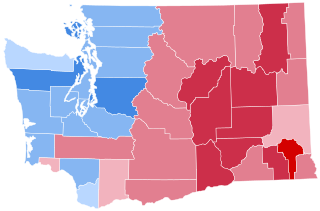 The 2012 United States presidential election in Washington took place on November 6, 2012, as part of the 2012 United States presidential election in which all 50 states plus the District of Columbia participated. Washington voters chose 12 electors to represent them in the Electoral College via a popular vote pitting incumbent Democratic President Barack Obama and his running mate, Vice President Joe Biden, against Republican challenger and former Massachusetts Governor Mitt Romney and his running mate, Congressman Paul Ryan. 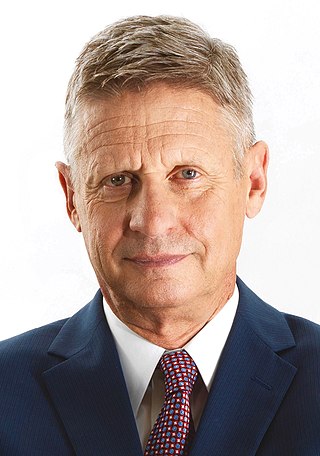 The 2016 Libertarian Party presidential primaries and caucuses allowed electors to indicate non-binding preferences for the Libertarian Party's presidential candidate. These differed from the Republican or Democratic presidential primaries and caucuses in that they did not appoint delegates to represent a candidate at the party's convention to select the party's nominee for the United States presidential election. The party's nominee for the 2016 presidential election was chosen directly by registered delegates at the 2016 Libertarian National Convention, which ran from May 26 to 30, 2016. The delegates nominated former New Mexico Governor Gary Johnson for President and former Massachusetts Governor Bill Weld for Vice President. 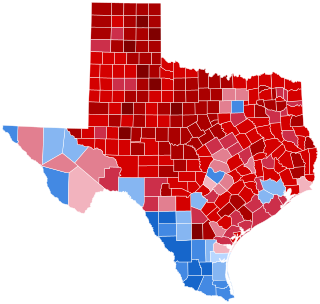 The 2016 United States presidential election in Texas took place on November 8, 2016, as part of the 2016 United States presidential election. Primary elections were held on March 1, 2016. 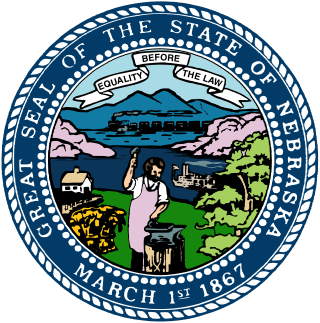 The 2016 United States presidential election in Nebraska was held on Tuesday, November 8, 2016, as part of the 2016 United States presidential election in which all 50 states plus the District of Columbia participated. Nebraska voters chose electors to represent them in the Electoral College via a popular vote, pitting the Republican Party's nominee, businessman Donald Trump, and running mate Indiana Governor Mike Pence against Democratic Party nominee, former Secretary of State Hillary Clinton, and her running mate Virginia Senator Tim Kaine. Nebraska has five electoral votes in the Electoral College, two from the state at large, and one each from the three congressional districts.  The 2016 United States presidential election in Maine was held on Tuesday, November 8, 2016, as part of the 2016 United States presidential election in which all 50 states plus the District of Columbia participated. Maine voters chose electors to represent them in the Electoral College via a popular vote, pitting the Republican Party's nominee, businessman Donald Trump, and running mate Indiana Governor Mike Pence against Democratic Party nominee, former Secretary of State Hillary Clinton, and her running mate Virginia Senator Tim Kaine. Maine has four electoral votes in the Electoral College. Unlike all other states except Nebraska, Maine awards two electoral votes based on the statewide vote, and one vote for each congressional district. The last time it did so was in 1828.  Presidential primaries and caucuses of the Republican Party took place in many U.S. states, the District of Columbia, and five U.S. territories from February 3 to August 11, 2020, to elect most of the 2,550 delegates to send to the Republican National Convention. Delegates to the national convention in other states were elected by the respective state party organizations. The delegates to the national convention voted on the first ballot to select Donald Trump as the Republican Party's nominee for president of the United States in the 2020 election, and selected Mike Pence as the vice-presidential nominee.  The 2020 Libertarian Party presidential primaries and caucuses were a series of electoral contests to indicate non-binding preferences for the Libertarian Party's presidential candidate in the 2020 United States presidential election. These differed from the Republican or Democratic presidential primaries and caucuses in that they do not appoint delegates to represent a candidate at the party's convention to select the party's presidential nominee.  The 2020 Green Party presidential primaries were a series of primary elections, caucuses and state conventions in which voters elected delegates to represent a candidate for the Green Party's nominee for President of the United States at the 2020 Green National Convention. The primaries, were held in numerous U.S. states on various dates from early spring into early summer of 2020, and featured elections publicly funded, concurrent with the Democratic Party and Republican Party primaries, and elections privately funded by the Green Party, held non-concurrently with the major party primaries.  The 2020 United States presidential election in New York was held on Tuesday, November 3, 2020, as part of the 2020 United States presidential election in which all 50 states plus the District of Columbia participated. New York voters chose electors to represent them in the Electoral College via a popular vote, pitting the Republican Party's nominee, incumbent President Donald Trump, and running mate Vice President Mike Pence against Democratic Party nominee, former Vice President Joe Biden, and his running mate California Senator Kamala Harris. New York had 29 electoral votes in the Electoral College. Trump announced that Florida would be his home state for this election, rather than New York as it had been previously. This was the first presidential election in New York to allow no-excuse absentee voting. 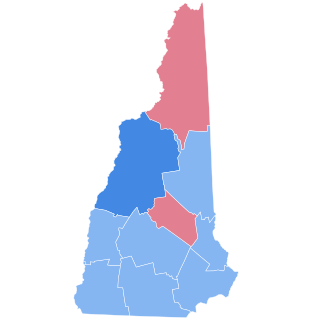 The 2020 United States presidential election in New Hampshire was held on Tuesday, November 3, 2020, as part of the 2020 United States presidential election in which all 50 states and the District of Columbia participated. New Hampshire voters chose electors to represent them in the Electoral College via a popular vote, pitting the Republican Party's nominees, incumbent President Donald Trump and Vice President Mike Pence, against the Democratic Party's nominees, former Vice President Joe Biden and his running mate, Senator Kamala Harris. New Hampshire has four electoral votes in the Electoral College.  The 2020 Libertarian National Convention delegates selected the Libertarian Party nominees for president and vice president in the 2020 United States presidential election. Primaries were held, but were preferential in nature and did not determine delegate allocation. The convention was originally scheduled to be held from May 21 to May 25 at the JW Marriott Austin luxury hotel in downtown Austin, Texas. On April 26, all reservations at the JW Marriott Austin were canceled in response to the COVID-19 pandemic, leaving the convention oversight committee to seek another venue for a possible July date.  The 2020 California Democratic presidential primary took place on March 3, 2020, as one of 15 contests scheduled on Super Tuesday in the Democratic Party primaries for the 2020 presidential election, following the South Carolina primary the weekend before. The California primary formed an unusual part of Super Tuesday as it had historically departed from its typical June date. It was a semi-closed primary, with the state awarding 494 delegates towards the 2020 Democratic National Convention, of which 415 were pledged delegates allocated on the basis of the results of the primary.  The 2020 Green National Convention (GNC) or presidential nominating convention was an event in which delegates of the Green Party of the United States (GPUS) chose its nominees for president and vice president in the 2020 U.S. presidential election. The convention was originally scheduled to be held July 9–12, 2020, at Wayne State University in Detroit, Michigan, but it was decided to instead hold the convention online due to the COVID-19 pandemic. This article contains the results of the 2020 Green Party presidential primaries and caucuses, the processes by which the Green Party of the United States selects delegates to attend the 2020 Green National Convention.  The 2024 Libertarian National Convention was a political event to select the Libertarian Party nominees for president and vice president in the 2024 election. It was held from May 24 to the early morning of May 27, 2024, at the Washington Hilton in Washington, D.C. References
| |||||||||||||||||||||||||||||||||||||||||||||||||||||||||||||||||||||||||||||||||||||||||||||||||||||||||||||||||||||||||||||||||||||||||||||||||||||||||||||||||||||||||||||||||||||||||||||||||||||||||||||||||||||||||||||||||||||||||||||||||||||||||||||||||||||||||||||||||||||||||||||||||||||||||||||||||||||||||



